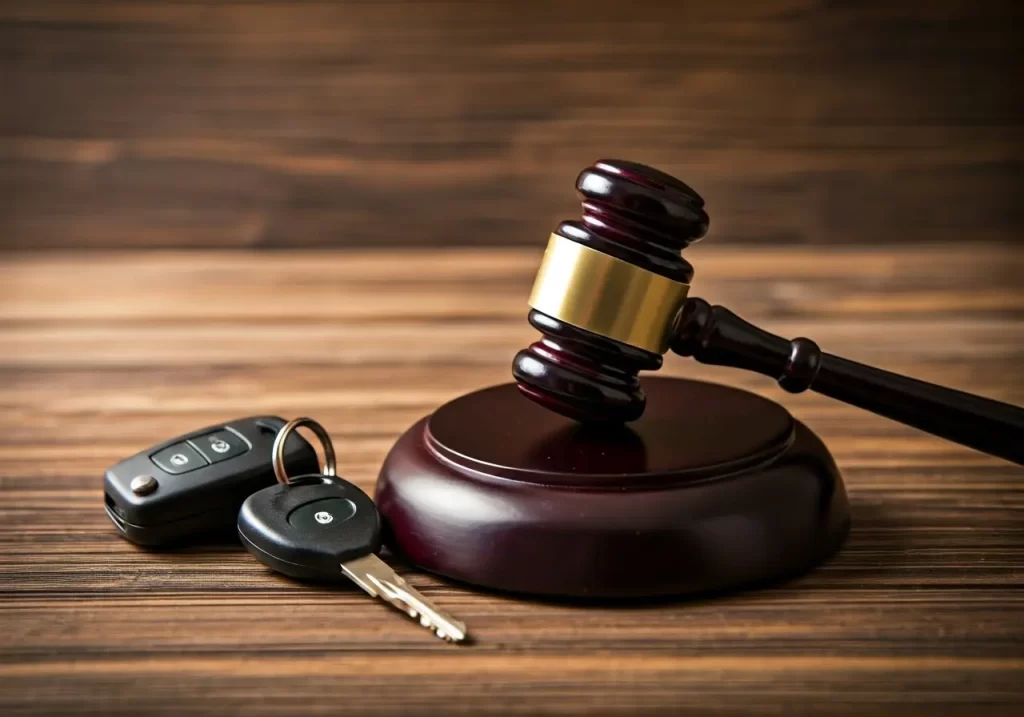Driving while intoxicated is a serious issue, but there’s a lot of misinformation out there. We’re here to set the record straight on common myths about DWI laws in New Jersey.
1. Myth: First-Time Offenders Get Off Easy
Many believe that if it’s your first time being caught driving while intoxicated in NJ, you’ll get a slap on the wrist. In reality, NJ laws are strict even for first-time offenders. According to New Jersey Revised Statutes, penalties for a first offense can include hefty fines, mandatory community service, license suspension, and even jail time. There’s also the potential for increased insurance rates and the social stigma attached to a conviction.
New Jersey’s commitment to stringent laws on DWIs isn’t just for show. It reflects a broader initiative to cut down on impaired driving and its often tragic consequences. Statistics show that impaired driving significantly increases the risk of fatal accidents. For instance, according to the National Highway Traffic Safety Administration, about 32% of all traffic crash fatalities in the United States involve drunk drivers. In New Jersey, even first-time offenders face severe penalties to deter impaired driving and enhance road safety.
Moreover, the legal ramifications can be just the beginning. Those convicted often face personal challenges, like strained relationships and difficulties at work. As one attorney explains, having a strong legal defense can make a significant difference in the outcome. But getting off easy is a notion that’s far from the modern legal reality.
2. Myth: Refusing a Breathalyzer Test Will Help You Avoid Charges
Some think that refusing to take a breathalyzer test will help them avoid DWI charges. However, NJ has implied consent laws, meaning refusal can lead to additional penalties. Refusal to submit to a breath test carries its own set of consequences, like automatic license suspension and fines that can be as severe as those for a DWI conviction.
Driving while intoxicated in NJ also involves understanding the broader implications of refusal. According to state law, refusing a breath test can result in a mandatory installation of an ignition interlock device, which can be both an inconvenience and an additional financial burden. Furthermore, as explained by Accelddevs, refusal doesn’t necessarily shield you from prosecution; observations from officers and other evidence can still be used against you in court.
3. Myth: You Can Only Be Charged if You’re Over the Legal Limit
It’s a common misconception that you can only be charged with DWI if your blood alcohol concentration (BAC) is over the legal limit. In truth, officers can arrest you based on observed impairment. This means that even if your BAC is below 0.08%, you can still face DWI charges if the officer believes your driving ability is impaired by alcohol or other substances.
Many drivers aren’t aware that noticeable impairment can occur even at lower BAC levels. According to the NHTSA, alcohol’s effects on coordination and decision-making can start to be significant at BAC levels as low as 0.02. Thus, a person might feel slightly buzzed but not impaired, leading them to wrongly assume they’re below the legal limit and safe to drive. This can lead to dangerous situations and unexpected legal consequences.
4. Myth: Prescription Medications Can’t Lead to DWI
Many think that only alcohol or illegal drugs can lead to a DWI charge. In fact, certain prescription medications can impair your ability to drive and result in a DWI charge. New Jersey law notes that driving under the influence includes being impaired by any substance, even those legally prescribed by a doctor.
The unfortunate reality is that many prescribed medications have side effects that significantly affect motor skills and reaction times. Medications like pain relievers, anti-anxiety drugs, and even some antihistamines can cause drowsiness, dizziness, and slowed reaction times. This isn’t just a theoretical concern. Numerous studies have shown that drivers using these medications are at an increased risk for accidents, similar to those driving under the influence of alcohol.
5. Myth: You Can Sober Up Quickly with Coffee or Cold Showers
There’s a myth that drinking coffee or taking a cold shower can quickly sober you up. Unfortunately, only time can reduce your BAC and its effects on driving. This misconception can lead drivers to make poor decisions, thinking they’re fit to drive when they’re still impaired.
Alcohol takes time to metabolize and leave the body, and no amount of caffeine or cold water can speed up this process. According to Franklin Lakes Police Department, even one drink can affect your judgment. Hence, it’s best to avoid driving entirely if you’ve been drinking, regardless of how ‘sober’ you feel after a cup of coffee or a refreshing shower.
6. Myth: DWI Charges Will Automatically Be Dropped if the Officer Made a Small Error
Some believe that any minor mistake made by the arresting officer will lead to dropped charges. While errors can affect a case, they don’t guarantee a dismissal. The legal process involves multiple steps where the prosecution can still build a strong case, especially if there is compelling evidence of impairment.
An error by the officer might impact some procedural aspects of the case, but substantial evidence like field sobriety test results and observations of impaired behavior can still lead to a conviction. It’s essential to understand that each case is unique. While minor errors may help negotiate reduced penalties, they don’t negate the fact that driving while intoxicated is taken very seriously in NJ courts.
7. Myth: DWI is Not a Big Deal
One of the most dangerous myths is that driving while intoxicated isn’t a serious offense. DWI endangers lives and carries severe legal and personal consequences. According to the NHTSA, drunk driving fatalities occurred once every 39 minutes in 2022. These are not just numbers; they’re preventable tragedies affecting countless families.
In addition to the potential loss of life, a DWI conviction can lead to a tarnished reputation, strained personal relationships, and lasting financial burdens. Many offenders are astonished when they realize the full impact on their lives, including professional ramifications. Employers may view a DWI conviction as a sign of irresponsibility, which can limit job opportunities and career advancement. The ripple effect of a DWI conviction in New Jersey is extensive, making it imperative to understand and respect DWI laws.


